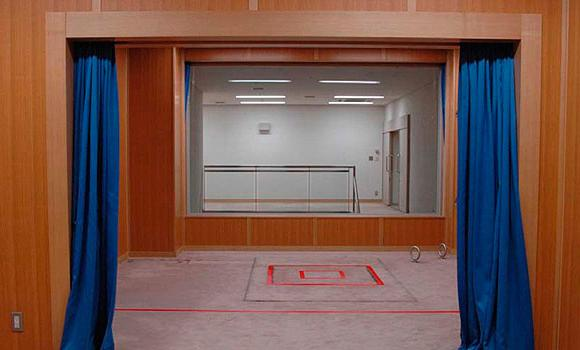Japan has hanged three death-row inmates, the first executions under Prime Minister Shinzo Abe.
The three were put to death in the early hours of Thursday, the Justice Ministry has confirmed. One of them was convicted of killing a young girl.
Japan traditionally executes several prisoners at a time. These are the first executions since September 2012.
Japan is one of the few industrialized nations to retain the death penalty, usually reserved for multiple murders.
“I ordered the executions after giving careful consideration to the matter,” Justice Minister Sadakazu Tanigaki said in a press briefing.
“These were extremely cruel cases in which victims were deprived of their precious lives for very selfish reasons.”
The three men hanged were indentified as Kaoru Kobayashi, 44, who killed a 7-year-old girl, Masahiro Kanagawa, 29, who killed one man and injured seven others outside a Tokyo shopping mall in 2008, and Keiki Muto, 62, who killed a bar owner for money in 2002.

Rights group Amnesty International’s branch in Japan has said that it “strongly condemns” Thursday’s executions.
Though the majority support the death penalty, rights groups say Japan’s death row is particularly harsh, with the condemned allowed few visits and little exercise.
Sometimes held for decades, they are not warned in advance of when they will be put to death.
Rights groups also highlight Japan’s 99% conviction rate, with most convictions based on confessions, as worrying, correspondents say.
There are currently more than 130 people on death row, including Shoko Asahara, the mastermind behind the 1995 sarin gas attacks on the Tokyo subway.
No executions were carried out in 2011, but they were restarted in March 2012 under the previous Democratic Party government. Shinzo Abe came to power in a landslide election win in December 2012.
Official figures in Japan as of 2011 put support for capital punishment at over 80%.
